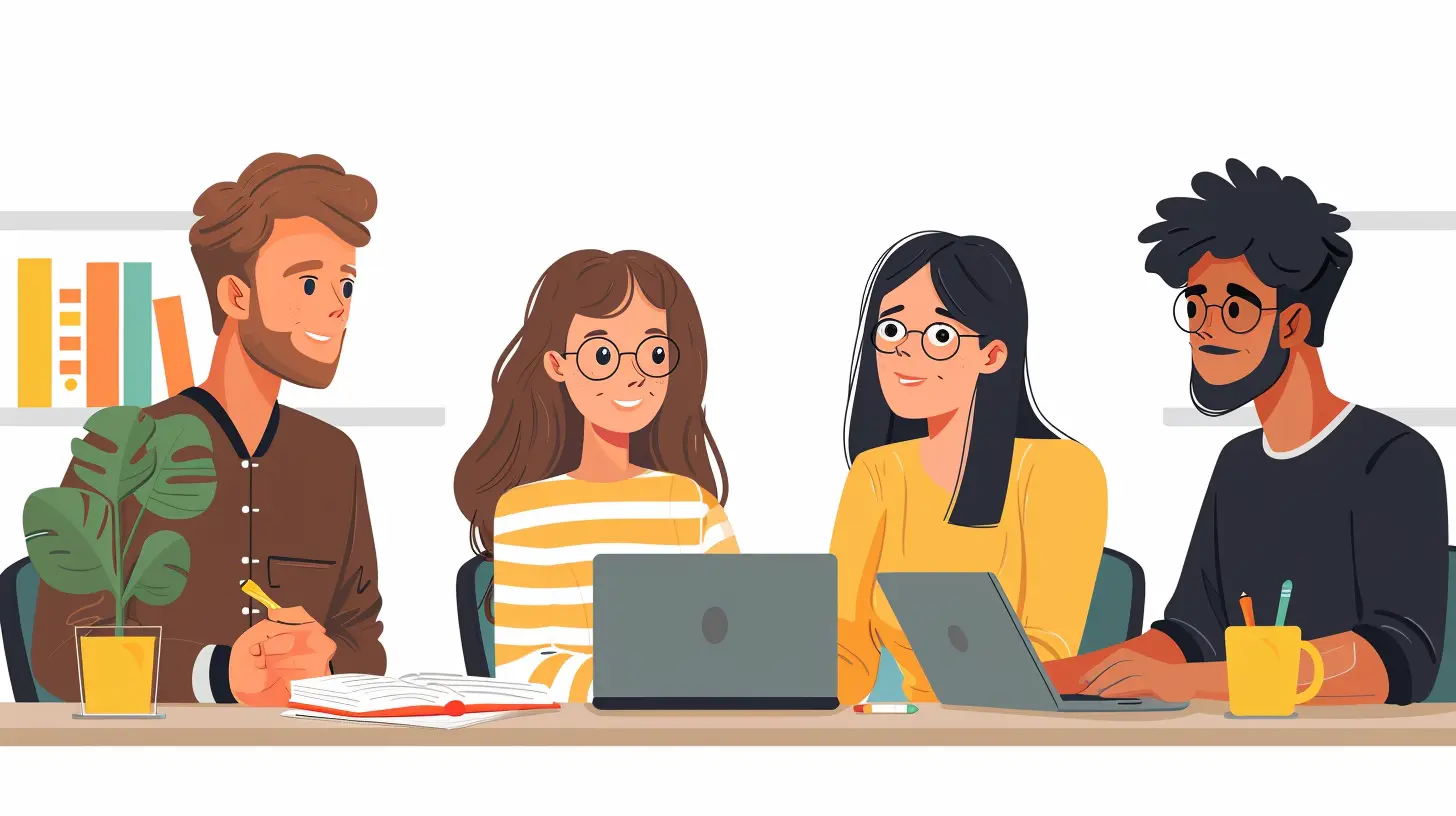Why Peer Tutoring Works: A Look at Collaborative Learning
21 June 2025
Education has evolved significantly over the years, and one of the most effective learning strategies is peer tutoring. It's a simple yet powerful approach where students help each other understand concepts, solve problems, and build confidence in their abilities. But why does peer tutoring work so well? Let’s dive into the psychological, academic, and social benefits of collaborative learning and why it’s a game-changer in education. 
The Magic Behind Peer Tutoring
Imagine struggling with a tough math problem. The teacher explains it, but it still doesn’t click. Then, your friend explains it in a way that makes perfect sense. That’s the beauty of peer tutoring—learning from someone who speaks your language, literally and figuratively.But why is it so effective? It boils down to engaging interactions, relatability, and active participation. Unlike traditional lectures, peer tutoring encourages a two-way conversation where both tutor and learner benefit. 
The Science of Collaborative Learning
1. Learning Feels Less Intimidating
Let’s face it—sometimes, asking a teacher for help feels intimidating. Students might worry about looking silly for not understanding a topic. With peer tutoring, that anxiety fades. Talking to a classmate feels more natural, and students are more open to asking questions without fear of judgment.2. Teaching Reinforces Understanding
Ever tried explaining something to a friend, only to realize you understand it better yourself? That’s no coincidence. Teaching a concept requires processing the information deeply, organizing thoughts, and delivering them in a way that makes sense to someone else. In short, teaching solidifies learning.3. Personalized and Flexible Learning
Unlike a one-size-fits-all classroom lecture, peer tutoring is highly personalized. The tutor adapts explanations, examples, and pacing to suit the learner’s needs. That flexibility makes a huge difference, especially for students who need extra time with a concept before it truly sticks.4. Boosting Confidence and Independence
When students receive help from peers, they gradually gain confidence in their abilities. Instead of relying solely on teachers, they start solving problems on their own, leading to greater independence in learning. Confidence in academics often spills over into other areas of life—a true win-win scenario.
Peer Tutoring in Action
1. Classroom-Based Peer Tutoring
Many schools now integrate peer tutoring programs where older students help younger ones, or classmates pair up to support each other. This fosters a strong learning environment and promotes teamwork.2. Study Groups and Informal Tutoring
Ever stayed back after class to go over notes with friends? That’s informal peer tutoring in action. Study groups bring multiple perspectives to a subject, making learning more engaging and fun.3. Online Peer Tutoring
With technology, peer tutoring isn’t limited to face-to-face interactions. Students can connect online through tutoring platforms, discussion forums, or even video calls to help each other anywhere, anytime.
The Social Benefits of Peer Tutoring
1. Strengthening Friendships and Social Skills
Not only does peer tutoring improve academic performance, but it also builds relationships. Learning together fosters teamwork, understanding, and social skills—all essential for personal growth.2. Encouraging a Growth Mindset
Peer tutoring helps students develop a growth mindset—the belief that intelligence and abilities can be improved through effort. Instead of feeling discouraged by challenges, students learn to embrace them as opportunities for growth.3. Creating a Supportive Learning Community
A classroom where students help each other is one where everyone thrives. When students see their peers succeed, it motivates them to keep pushing forward, creating a positive cycle of learning and encouragement.Does Peer Tutoring Work for Everyone?
While peer tutoring brings many benefits, it’s not a one-size-fits-all solution. Some students may need additional support from teachers or professional tutors, especially for complex subjects. However, as a supplementary learning method, it’s incredibly effective.For peer tutoring to be successful, students should:
✅ Be motivated to learn and teach
✅ Have clear communication and patience
✅ Create a structured approach with specific goals
✅ Receive guidance from teachers or mentors when needed
When done right, peer tutoring enhances learning for both the tutor and the learner.
Final Thoughts: Why Peer Tutoring Is a Game-Changer
Peer tutoring is more than just students helping each other—it’s a collaborative learning experience that builds confidence, understanding, and social growth. It transforms education into a shared journey, where students support each other’s success.So, if you ever have the chance to teach a friend or learn from a peer, embrace it. You might be surprised at how much you both grow in the process.
all images in this post were generated using AI tools
Category:
Peer TutoringAuthor:

Zoe McKay
Discussion
rate this article
2 comments
Ezra McAnally
Peer tutoring fosters collaboration, boosts confidence, and makes learning fun! Great insights in this article!
November 15, 2025 at 12:56 PM

Zoe McKay
Thank you for your positive feedback! I'm glad you found the insights on peer tutoring valuable.
Daphne Barrett
Ah yes, because learning from friends is totally groundbreaking!
June 21, 2025 at 3:01 AM

Zoe McKay
While it may seem straightforward, peer tutoring leverages unique insights and relatability that can enhance understanding in ways traditional methods often overlook.


